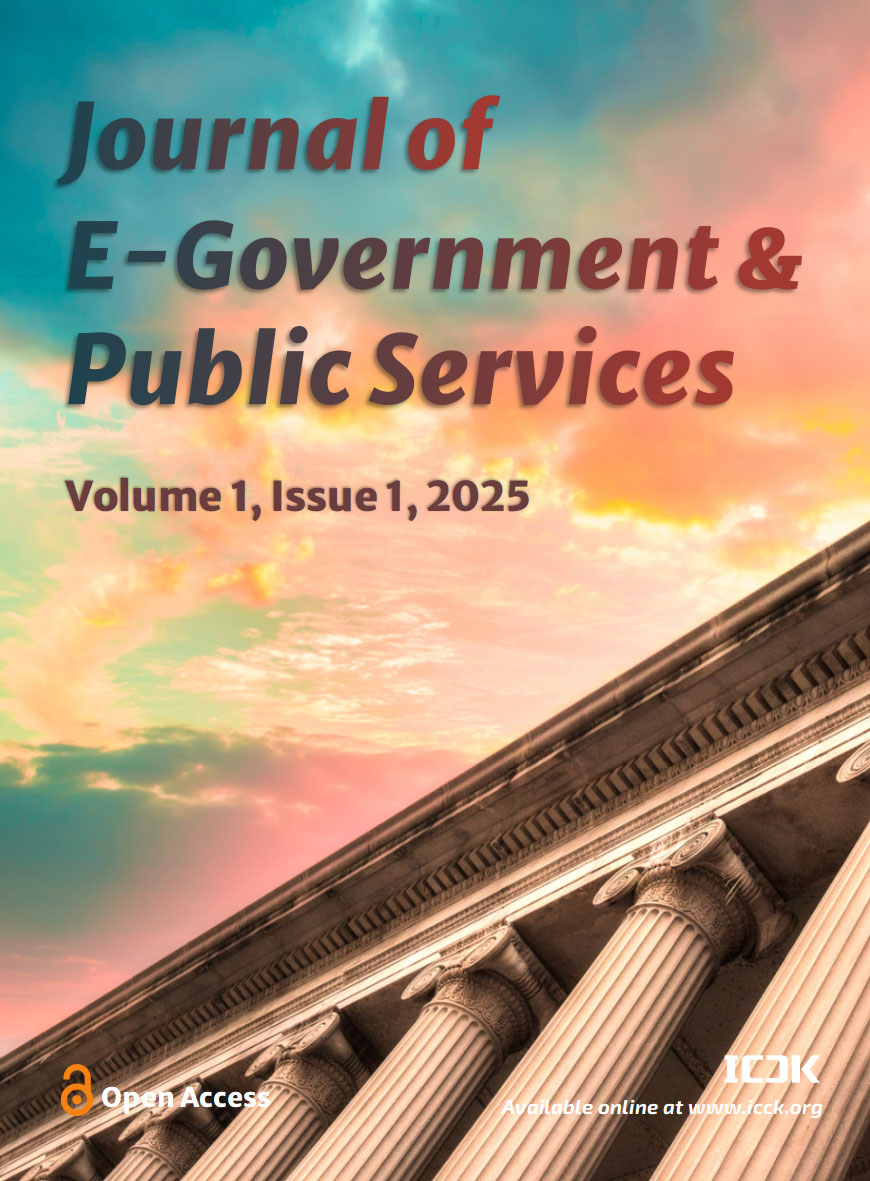Abstract
The governance of public emergencies urgently needs to break the dilemma of the traditional "fragmentation" model. Based on the theory of collaborative governance, this paper constructs a "full-cycle-multi-dimensional" analytical framework, which reveals the core problems such as the imbalance of power and responsibility of multiple subjects, information silos, and institutional lag. Through typical cases such as cross-sectoral collaboration in Guangdong, Hong Kong and Macao Bay Area and precise rescue by X Social Work Service Center, it proposes an organizational structure of "Umbrella Shaped Co-Governance Network" and a balancing mechanism of "Rule of Law-Resilience": constructing a cross-sectoral risk early warning system driven by Artificial Intelligence (AI) beforehand, which can achieve an accuracy of risk prediction up to 82.3%, and transparent scheduling of resources through blockchain technology during the process. Transparent scheduling of resources. AI-driven cross-sectoral risk early warning system is constructed beforehand, transparent scheduling of resources is realized through blockchain technology during the event, and a market-based compensation mechanism is established after the event. The study finds that the improvement of collaborative efficiency requires the activation of social forces through the transfer of data sovereignty and the use of the "meltdown-escalation" law to break the deadlock of cross-sectoral collaboration. The study provides lessons and references for the formulation and implementation of emergency response plans and the optimization of mechanism paths.
Data Availability Statement
Data will be made available on request.
Funding
This work was supported without any funding.
Conflicts of Interest
The authors declare no conflicts of interest.
Ethical Approval and Consent to Participate
Not applicable.
Cite This Article
APA Style
Hou, Y., Li, Q., & Yang, L. (2025). Research on the Governance Mechanism of Sudden Public Events Under the Perspective of Collaborative Governance. Journal of E-Government and Public Services, 1(1), 3–12. https://doi.org/10.62762/JEGPS.2025.512829
Publisher's Note
ICCK stays neutral with regard to jurisdictional claims in published maps and institutional affiliations.
Rights and Permissions

Copyright © 2025 by the Author(s). Published by Institute of Central Computation and Knowledge. This article is an open access article distributed under the terms and conditions of the Creative Commons Attribution (CC BY) license (
https://creativecommons.org/licenses/by/4.0/), which permits use, sharing, adaptation, distribution and reproduction in any medium or format, as long as you give appropriate credit to the original author(s) and the source, provide a link to the Creative Commons licence, and indicate if changes were made.


 Submit Manuscript
Edit a Special Issue
Submit Manuscript
Edit a Special Issue
 Copyright © 2025 by the Author(s). Published by Institute of Central Computation and Knowledge. This article is an open access article distributed under the terms and conditions of the Creative Commons Attribution (CC BY) license (https://creativecommons.org/licenses/by/4.0/), which permits use, sharing, adaptation, distribution and reproduction in any medium or format, as long as you give appropriate credit to the original author(s) and the source, provide a link to the Creative Commons licence, and indicate if changes were made.
Copyright © 2025 by the Author(s). Published by Institute of Central Computation and Knowledge. This article is an open access article distributed under the terms and conditions of the Creative Commons Attribution (CC BY) license (https://creativecommons.org/licenses/by/4.0/), which permits use, sharing, adaptation, distribution and reproduction in any medium or format, as long as you give appropriate credit to the original author(s) and the source, provide a link to the Creative Commons licence, and indicate if changes were made. 